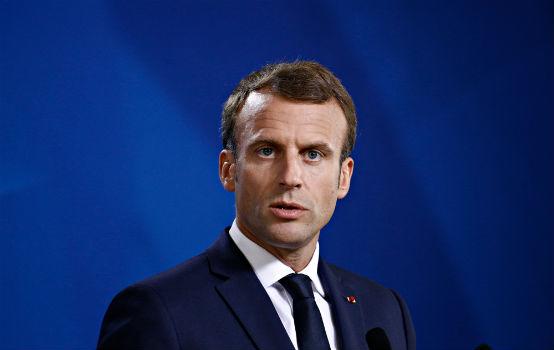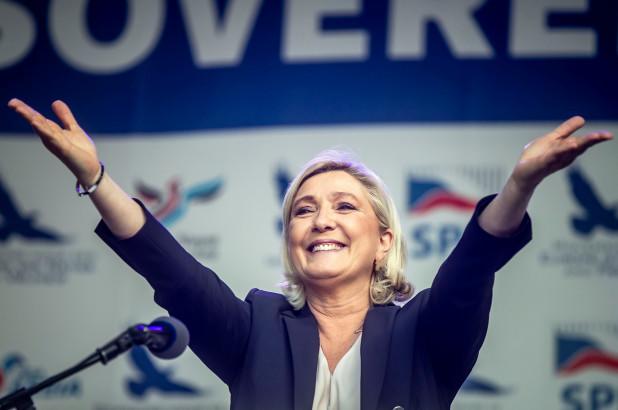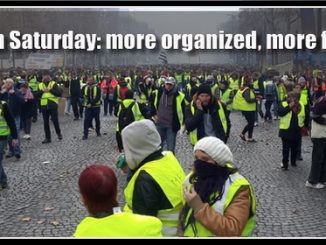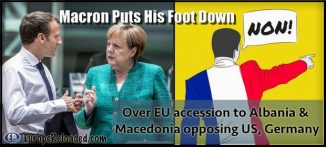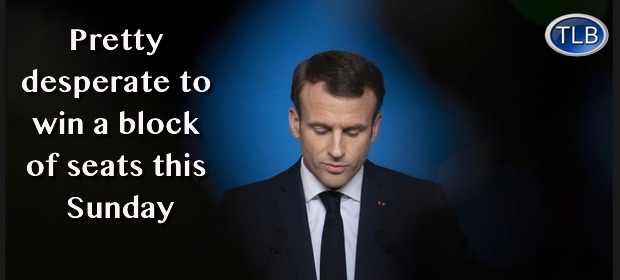
Macron Goes Full Machiavelli Ahead Of The European Elections
The French president is gathering unlikely allies to challenge the populists. But he’s so unpopular, it might not even matter.
It’s rare that the likes of Emmanuel Macron are compared to Roger Stone. But Stone’s cardinal rule, “In order to win, you must do everything,” very much applies to the French president. And the latest political alliance he’s struck ahead of the upcoming European elections only reinforces that.
Macron’s La République En Marche (“the Republic on the move”) party presented its European election manifesto in Paris two weeks ago, then traveled to Berlin and other European capitals to rally French expat voters. It also promoted its ally parties from other countries, namely the German Free Democratic Party (FDP), the Spanish center-right Ciudadanos, the Dutch D66, the Hungarian Momentum, the Belgian liberal MR, the Austrian liberal NEOS, and Dutch Prime Minister Mark Rutte’s VVD. Through this group—which is humbly called “Renaissance”—Macron is trying to win 100 seats in the European Parliament (out of 778). But getting there will be tough because even the aforementioned parties that actively wield power haven’t won significant shares of the vote.
This is where the Alliance of Liberals and Democrats for Europe (ALDE), a transnational political grouping, comes in.
Macron’s plan is to adopt the platform of the ALDE, drop the word “liberal” (which in Europe still refers to economic liberalism), and use its resources to argue for a stronger EU.  But the ALDE itself has struggled to establish a power base and forged some shady alliances in trying to do so. For instance, it currently includes the Czech party ANO, whose leader, Andrej Babiš, is being investigated for allegedly misallocating €2 million ($2.24 million) for an infrastructure project he himself owned, in what is currently one of his country’s biggest corruption scandals. Babiš was a member of the communist party in the 1980s. He is on the European Court of Human Rights’ list of the former Czechoslovak dictatorship’s secret agents. He created a business empire in the post-Soviet 1990s, and now owns a very significant part of the Czech Republic’s media landscape.
But the ALDE itself has struggled to establish a power base and forged some shady alliances in trying to do so. For instance, it currently includes the Czech party ANO, whose leader, Andrej Babiš, is being investigated for allegedly misallocating €2 million ($2.24 million) for an infrastructure project he himself owned, in what is currently one of his country’s biggest corruption scandals. Babiš was a member of the communist party in the 1980s. He is on the European Court of Human Rights’ list of the former Czechoslovak dictatorship’s secret agents. He created a business empire in the post-Soviet 1990s, and now owns a very significant part of the Czech Republic’s media landscape.
And he isn’t the only media mogul on the list of Macron’s likely allies. Delyan Peevski from the ALDE 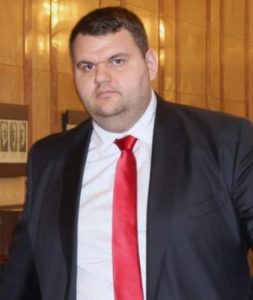 affiliate Movement for Rights and Freedoms (DPS) was identified by Reporters Without Borders as one of the main reasons for the poor state of the media in Bulgaria. RWB points out that the “New Bulgarian Media Group” controls nearly 80 percent of print media distribution in that country, and that it covers up corruption scandals by intimidating those trying to investigate shady business deals.
affiliate Movement for Rights and Freedoms (DPS) was identified by Reporters Without Borders as one of the main reasons for the poor state of the media in Bulgaria. RWB points out that the “New Bulgarian Media Group” controls nearly 80 percent of print media distribution in that country, and that it covers up corruption scandals by intimidating those trying to investigate shady business deals.
In Estonia, ALDE-affiliated Prime Minister Jüri Ratas (pictured below) didn’t mind forming a government coalition with the far-right EKRE party. Estonian Minister of Finance Martin Helme, a member of the EKRE, has been quoted saying “If you’re black, go back,” and calling for a “white Estonia.” His father, Mart Helme, who is now minister of interior, complained that the “number of negroes in Tallinn [Estonia’s  capital] has grown explosively” and said of LGBT events that he does not see why “the police should guard a parade of perverts.”
capital] has grown explosively” and said of LGBT events that he does not see why “the police should guard a parade of perverts.”
To warn of a “wave of dangerous populists in Europe” while simultaneously getting in bed with them to stay in power shows quite a level of political opportunism. Not that being called a populist worries this group too much. In 2017, ALDE leader and former Belgian prime minister Guy Verhofstadt held talks with the populist Italian Five Star Movement, which is currently part of the Italian government. Verhofstadt was hoping to bring them onboard, which would have made the ALDE the third biggest group in the Parliament—even though he himself had said two years earlier that “it is impossible for any responsible, pro-European group to take the M5S [the Five Star Movement] on board” in a post that he has since deleted. Call it a European flip-flop.
Now that the Italian nationalists have opted out of a “centrist” alliance, Macron’s Renaissance is attempting to recruit the Italian Social Democrats. The ALDE says it’s looking for a “green, left, and centrist” coalition. I think they’re running the risk of repeating themselves.
WHAT DOES MACRON ACTUALLY WANT?
Renaissance’s manifesto makes mention of much of what he’s already argued for in his European reform plans. But that was back when he was still giving off an exciting vibe in the distant year of 2017. People don’t get fired up by a European minimum wage and a European army anymore. Particularly in Central and Eastern Europe, centralized minimum wage laws can be seen as a way to crush emerging industries in favor of Western European production. And Macron’s proposed “agency to protect European democracies” would likely be viewed as taking aim at the governments of Poland, Hungary, and Romania.
 But Macron’s struggles ultimately start at home. His pick for lead candidate in the European elections, Nathalie Loiseau (pictured), is a diplomat and academic administrator. Utterly devoid of excitement, she used a recent speech to give voice to the standard “dangers” of Donald Trump’s politics and likened her political project to the spirit of Gutenberg and Picasso. The address was probably supposed to fit with the “Renaissance” theme. That a considerable part of the country was still putting on yellow traffic vests and screaming their lungs out against the government in Paris doesn’t seem to bother her. They’re probably all populists anyway.
But Macron’s struggles ultimately start at home. His pick for lead candidate in the European elections, Nathalie Loiseau (pictured), is a diplomat and academic administrator. Utterly devoid of excitement, she used a recent speech to give voice to the standard “dangers” of Donald Trump’s politics and likened her political project to the spirit of Gutenberg and Picasso. The address was probably supposed to fit with the “Renaissance” theme. That a considerable part of the country was still putting on yellow traffic vests and screaming their lungs out against the government in Paris doesn’t seem to bother her. They’re probably all populists anyway.
Marine Le Pen doesn’t need to do much ahead of the elections. She leads Macron’s movement by half a point, which would have been considered unfathomable just a year ago. And the more Le Pen gathers steam, the more Macron will lose ground.
Not that we should have expected more from one of the most unpopular presidents in French history.
************
Original article


